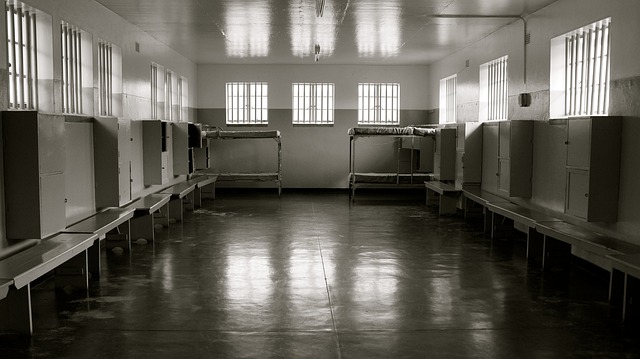The disparities in Rural vs Urban DUI Legislation significantly impact sentencing and prosecution, with rural areas often employing less severe measures compared to urban centers. These differences stem from varying population densities, traffic patterns, and resource availability. While urban jurisdictions prefer strict penalties for first-time offenders, rural communities may opt for rehabilitation or community service. It's crucial for individuals facing DUI charges to understand the specific legislation in their region to develop an effective legal defense strategy and ensure fair treatment under local laws.
In the realm of criminal justice, first-time offenders often face disparities in punishment, particularly between rural and urban settings. This article delves into the intricate differences in DUI laws and their impact on reintegration for novice offenders. We explore how geographical location shapes rehabilitation outcomes, with a focus on rural vs. urban DUI legislation. By examining various programs, we uncover effective strategies for second chances, aiming to enhance understanding of this crucial aspect of criminal reform.
- Rural and Urban DUI Laws: An Overview
- Disparities in Punishment for First-Time Offenders
- Second Chance Programs: A Glimpse into Effective Reintegration
- The Impact of Location on DUI Offender Rehabilitation
Rural and Urban DUI Laws: An Overview

In terms of Rural vs Urban DUI Legislation, it’s important to understand that laws and penalties can vary significantly based on location. Rural areas often have less stringent enforcement compared to urban centers, resulting in different sentencing guidelines and prosecution strategies. This disparity stems from factors like population density, traffic patterns, and access to resources. For instance, while urban jurisdictions might prioritize heavy fines and license suspensions for first-time offenders, rural communities may opt for rehabilitation programs or community service as alternative punishments.
In light of these differences, it’s crucial for individuals facing DUI charges to research and understand the specific Rural vs Urban DUI Legislation in their area. This knowledge can significantly impact their legal defense strategies, ensuring they receive fair treatment tailored to their region’s legal framework.
Disparities in Punishment for First-Time Offenders

In many jurisdictions, first-time offenders often face significantly less severe punishments compared to repeat offenders. However, disparities exist, particularly between rural and urban areas when it comes to DUI (drunk driving) legislation. Rural communities may have different approaches due to lower population densities and varying legal priorities. Urban areas, with their higher crime rates and more congested courts, tend to have stricter laws and harsher penalties for first-time DUI offenders.
These disparities can be attributed to the resources available, public perception of drunk driving, and political will. Urban regions often have dedicated units and stringent regulations to combat DUI, while rural areas may rely on general law enforcement with limited resources. Understanding these variations is crucial when advocating for equitable treatment of first-time offenders across different geographical settings.
Second Chance Programs: A Glimpse into Effective Reintegration

Second Chance Programs play a pivotal role in the effective reintegration of first-time offenders, especially those convicted of DUI (Drunk Driving Under Influence) charges. These programs vary significantly between rural and urban settings, reflecting the distinct challenges and resources available in each environment. In rural areas, where communities are often tighter-knit and support systems more readily accessible, second chance initiatives might focus on community service and mentorship programs that leverage local networks to help offenders reenter society successfully. Urban legislation, on the other hand, frequently implements larger-scale interventions due to higher population densities and more complex social issues. These urban programs can include job training, educational workshops, and counseling services tailored to address specific barriers faced by first-time DUI offenders in metropolitan areas.
The Rural vs Urban DUI Legislation divide underscores the importance of locale-specific second chance programs. In rural communities, where social services might be less abundant but support from neighbors is often strong, personalized interventions can be highly effective. Conversely, urban centers, with their diverse populations and vast array of service providers, may benefit from more structured and comprehensive programs designed to cater to a broader spectrum of needs. Ultimately, the goal remains consistent: to empower first-time offenders with the tools and resources necessary to turn their lives around and reintegrate successfully into society.
The Impact of Location on DUI Offender Rehabilitation

The environment in which a first-time DUI offender is rehabilitated can significantly impact their success in turning their life around. This is particularly evident when comparing rural and urban settings, as the rural vs urban DUI legislation differs greatly. In rural areas, where communities are often tighter-knit and support systems more readily available, offenders may benefit from a sense of belonging and accountability that urban environments might not offer. Access to counseling, support groups, and rehabilitation programs is usually more centralized in cities, providing easier navigation for those seeking help.
These contrasting landscapes also influence the availability and type of employment opportunities post-rehabilitation, which directly correlate with successful reintegration into society. Urban areas, with their diverse job markets, can offer a wider range of options, while rural locations may present challenges due to limited economic resources and employment diversity, requiring tailored support systems to bridge this gap for recovering offenders.
In examining rural vs. urban DUI legislation and the impact of location on offender rehabilitation, it’s clear that disparities in punishment for first-time offenders exist. However, second chance programs offer a promising path to effective reintegration, emphasizing the importance of tailored support systems regardless of geographical setting. Understanding these nuances is crucial for fostering more equitable and successful outcomes for those facing DUI charges for the first time.






